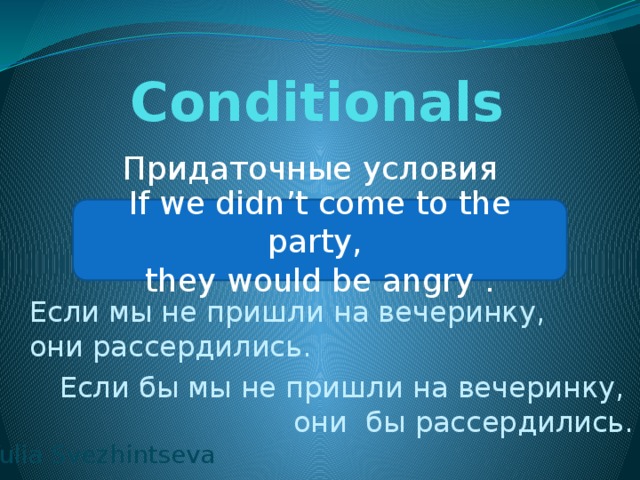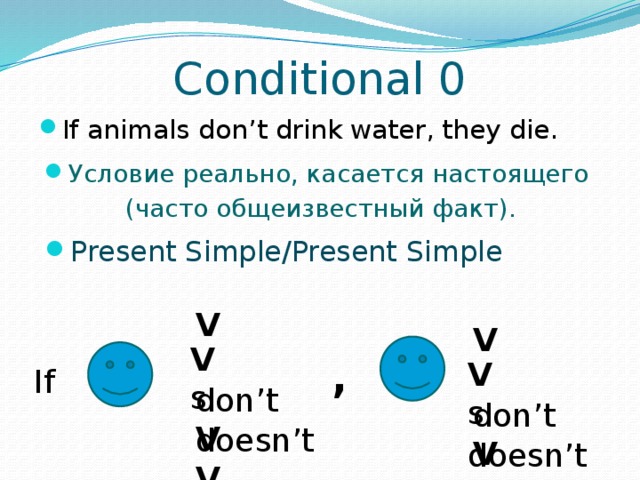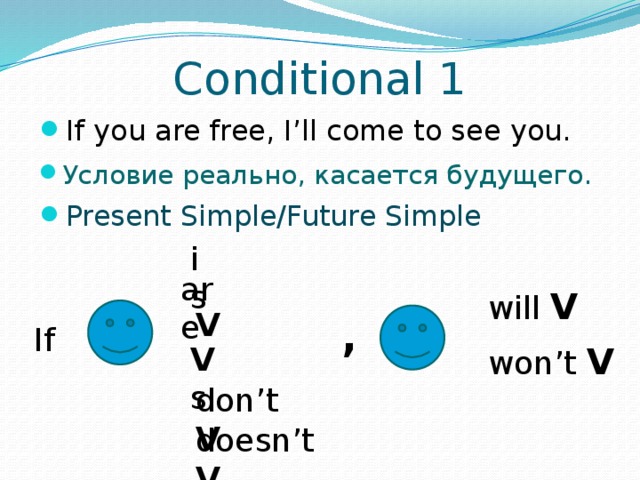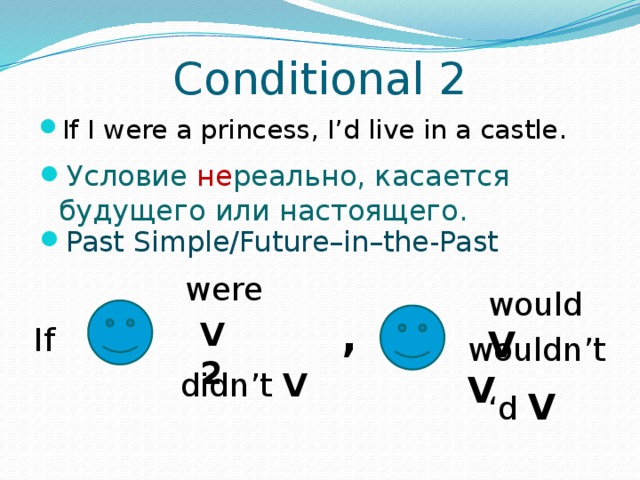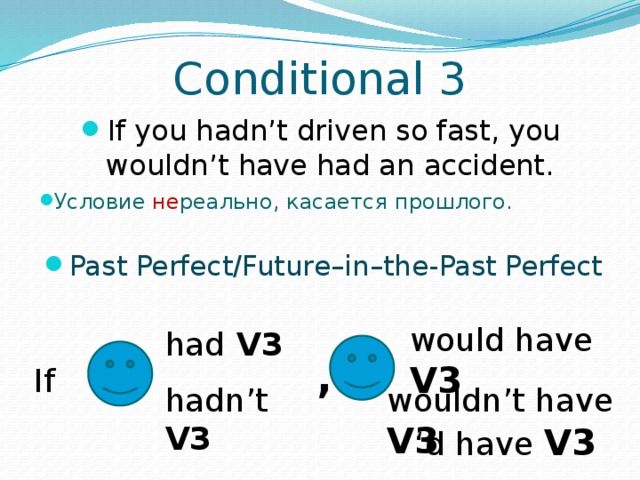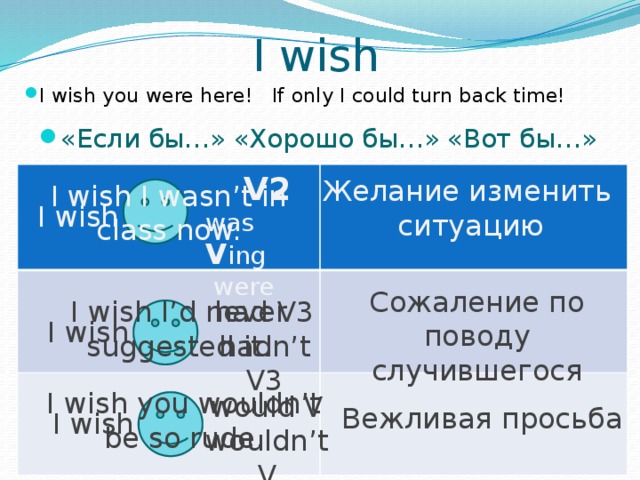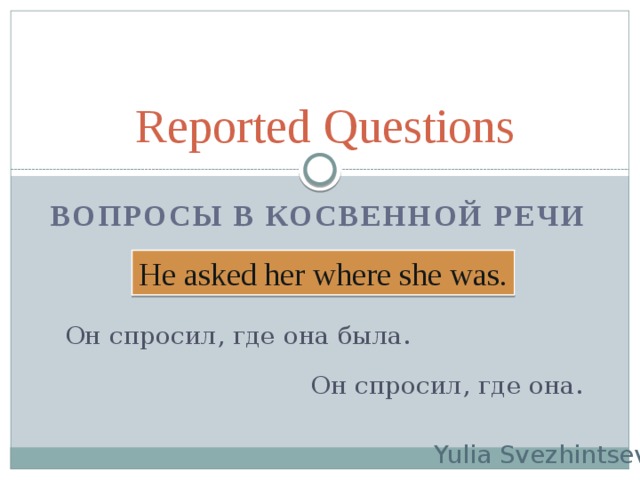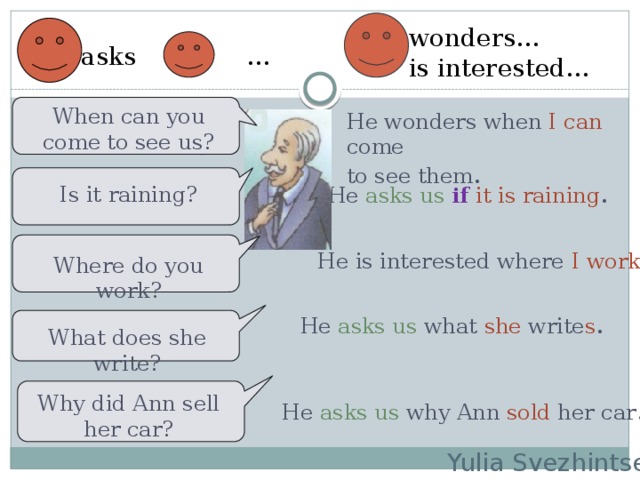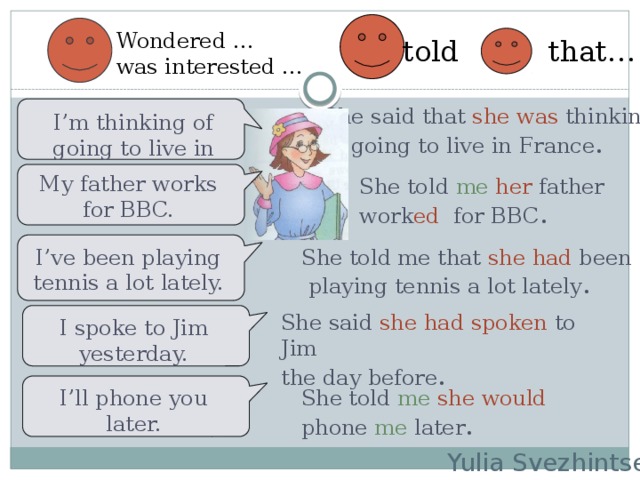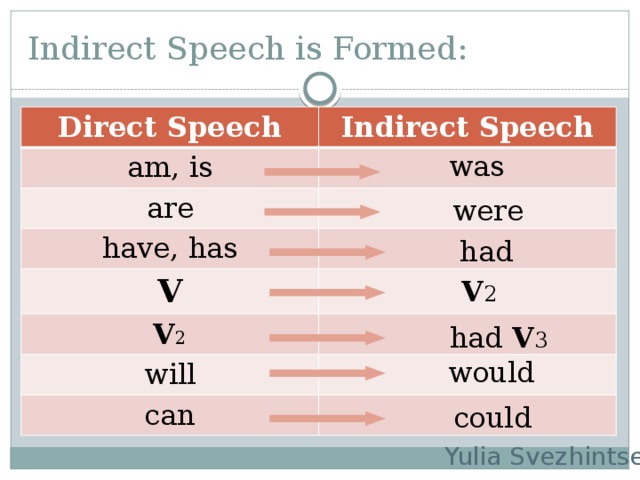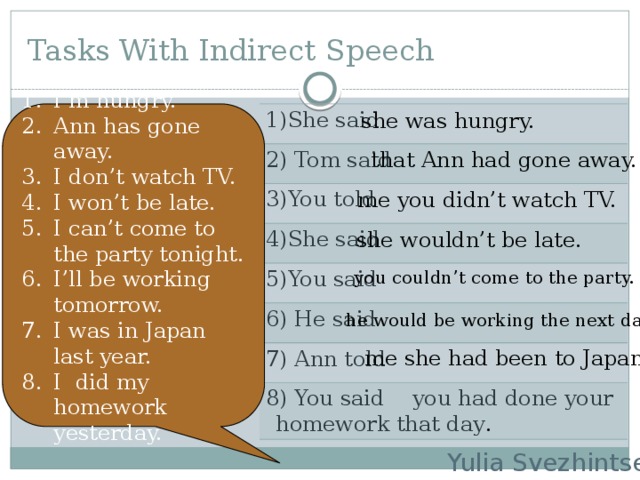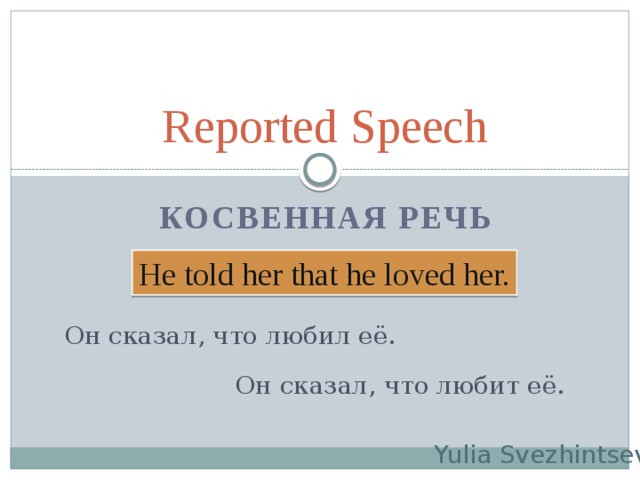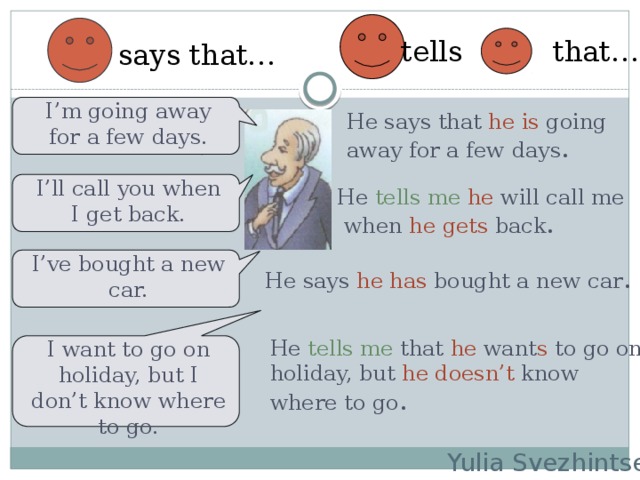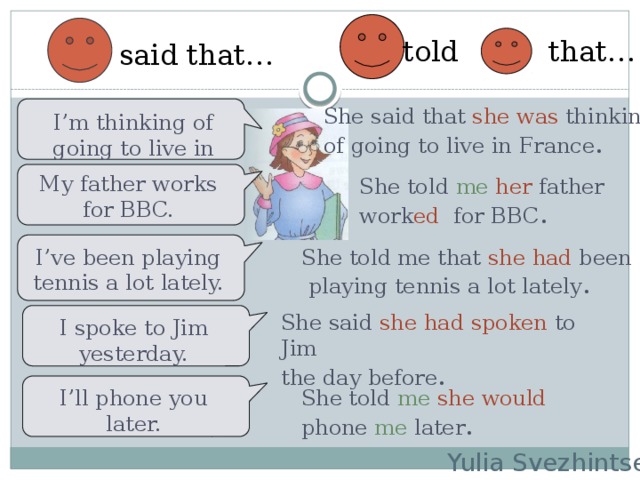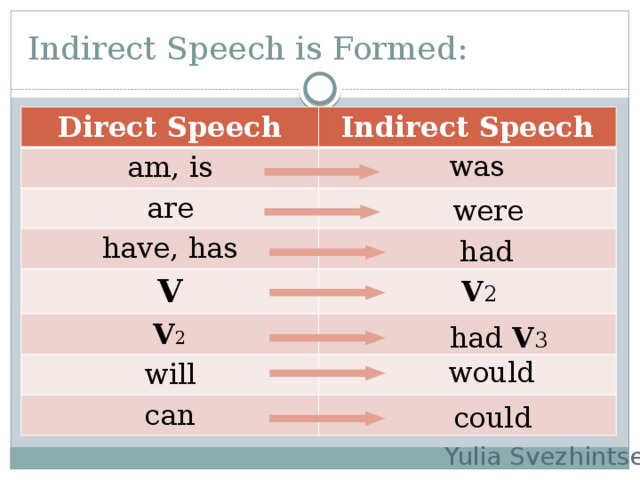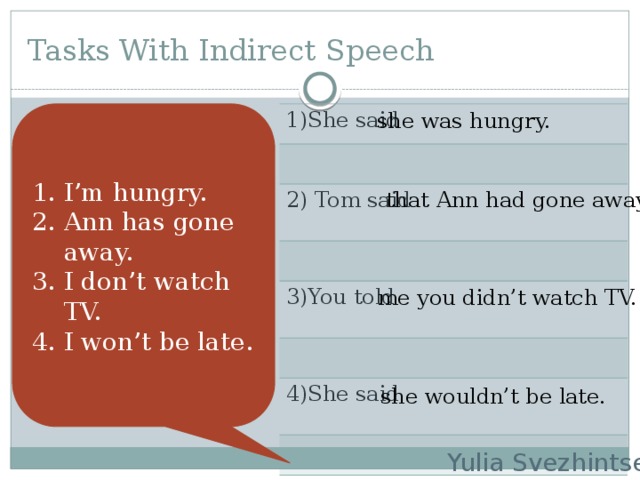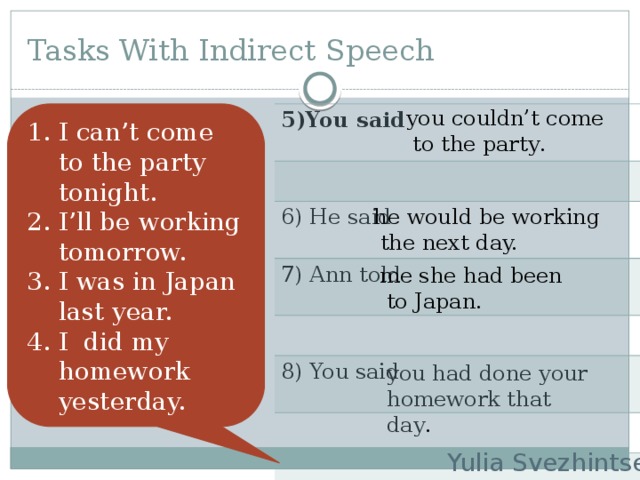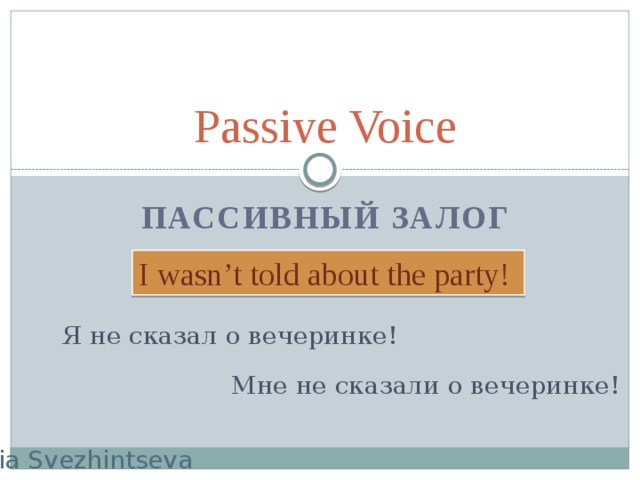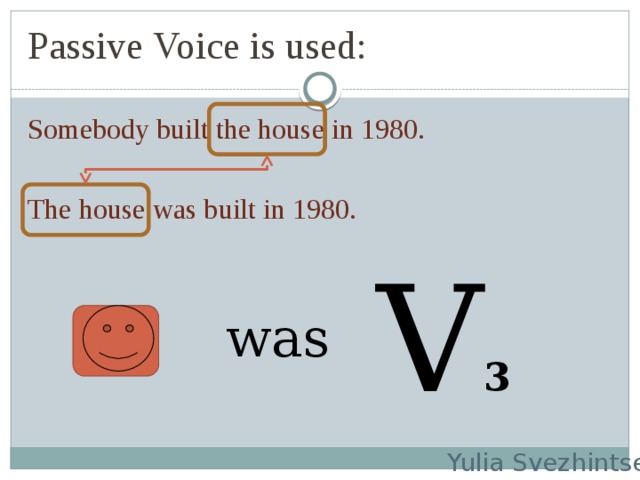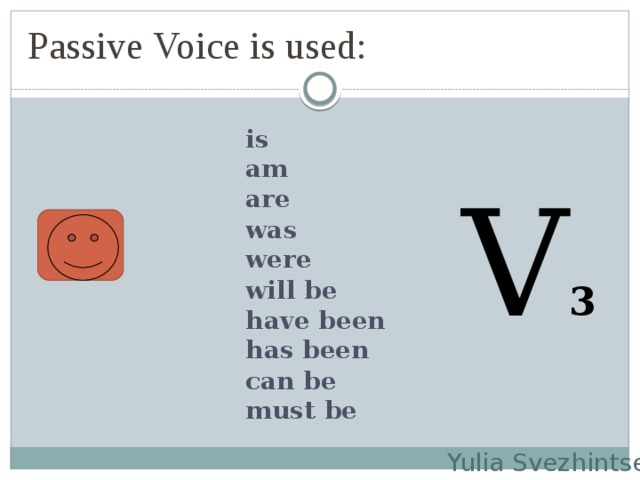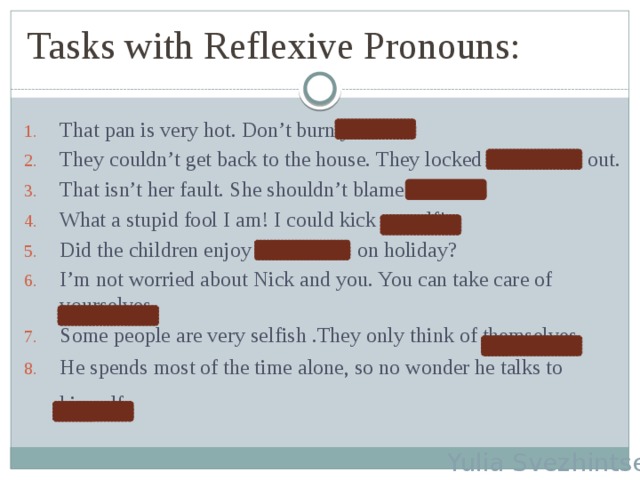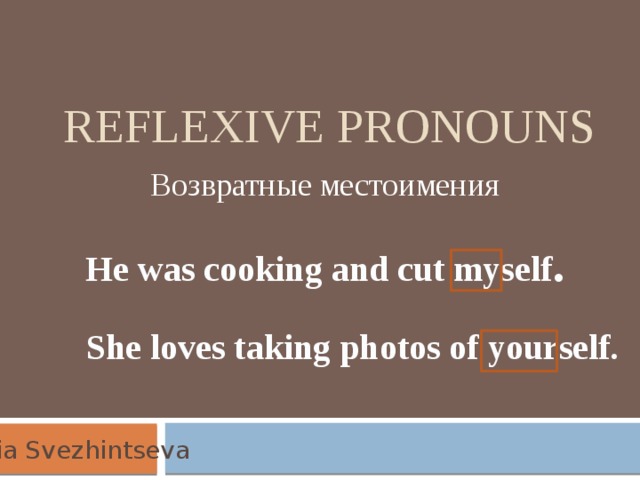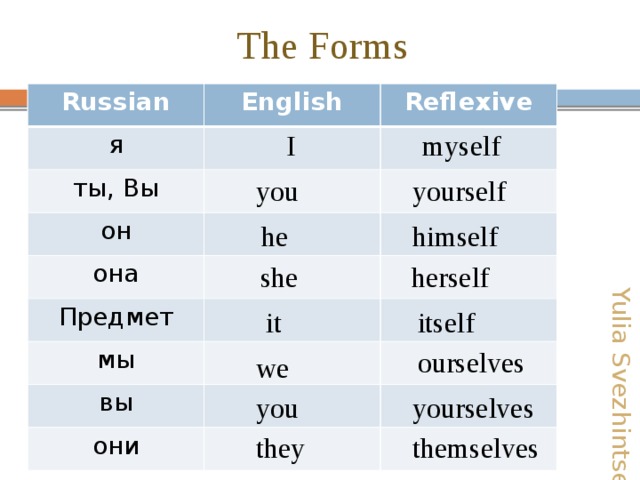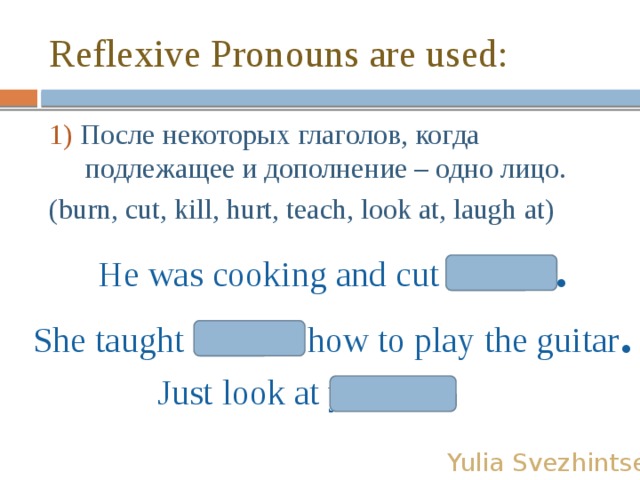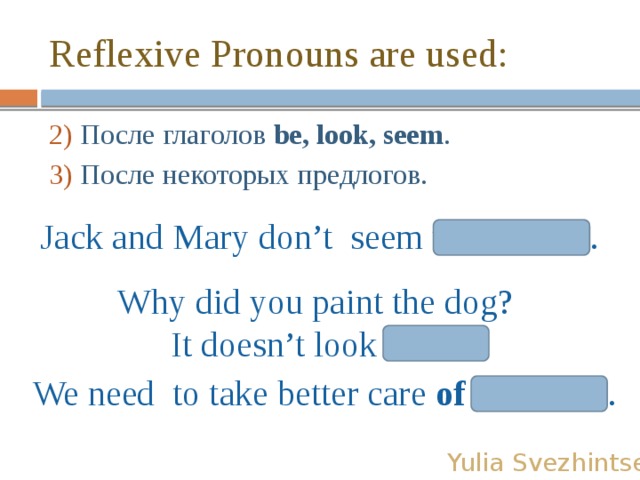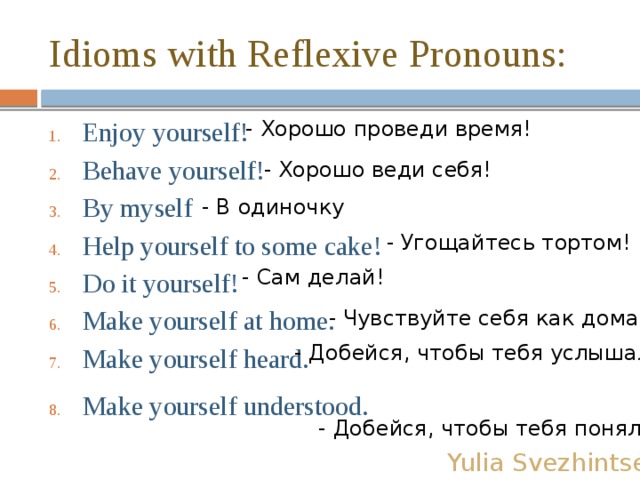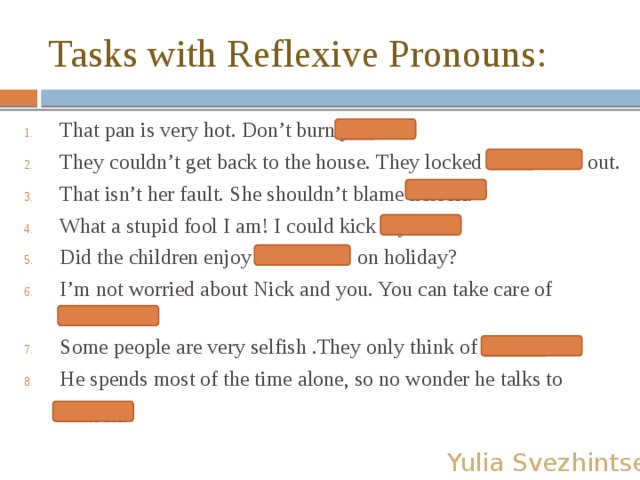В архиве пять презентаций, отражающих сложный грамматический материал в 7-9 классах(Conditionals, Passive Voice, Reflexive Pronouns, Indirect Speech). Презентации разрабатывались по учебнику "Spotlight", но подойдут и для других программ. В каждой сначала появляются примеры, на основе которых учащиеся сами выводят правила употребления конструкций. В некоторых из них за материалом следуют задания.
Создайте Ваш сайт учителя Видеоуроки Олимпиады Вебинары для учителей
Презентации по грамматике для 7-9 классов
Вы уже знаете о суперспособностях современного учителя?
Тратить минимум сил на подготовку и проведение уроков.
Быстро и объективно проверять знания учащихся.
Сделать изучение нового материала максимально понятным.
Избавить себя от подбора заданий и их проверки после уроков.
Наладить дисциплину на своих уроках.
Получить возможность работать творчески.
Просмотр содержимого презентации
«Conditionals»
Просмотр содержимого презентации
«Indirect Questions»
Просмотр содержимого презентации
«Indirect Speech»
Просмотр содержимого презентации
«Passive Voice»
Просмотр содержимого презентации
«Reflexive Pronouns»
Похожие файлы
Полезное для учителя
Распродажа видеоуроков!
1940 руб.
2770 руб.
1770 руб.
2530 руб.
2160 руб.
3080 руб.
2160 руб.
3080 руб.
ПОЛУЧИТЕ СВИДЕТЕЛЬСТВО МГНОВЕННО
* Свидетельство о публикации выдается БЕСПЛАТНО, СРАЗУ же после добавления Вами Вашей работы на сайт
Удобный поиск материалов для учителей
Проверка свидетельства
